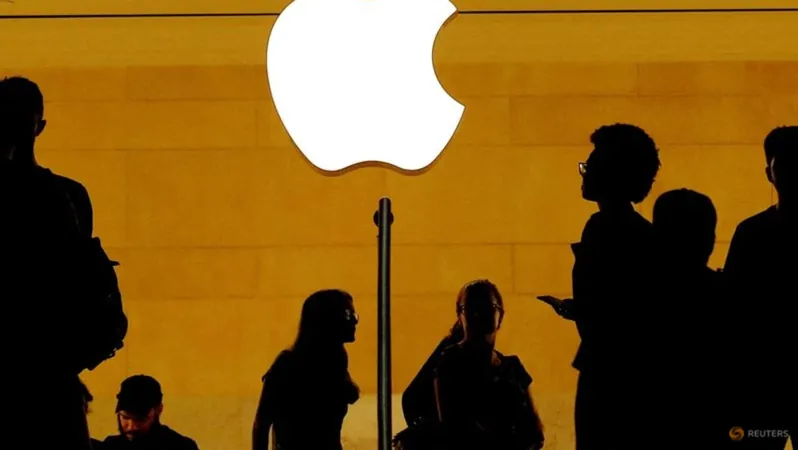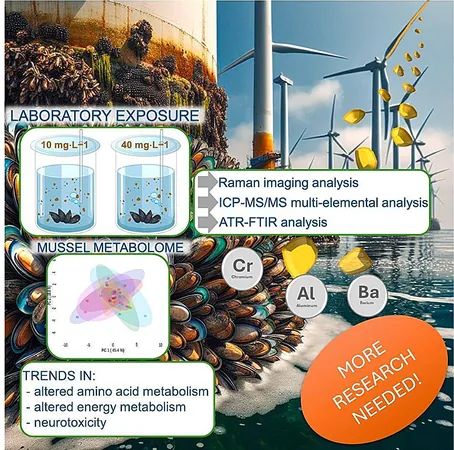
Congo Lawyers Demand Verification of Apple's Supply Chain Commitment Amid Ongoing Conflict
2024-12-18
Author: Ming
Introduction
In a significant development, international lawyers representing the Democratic Republic of Congo (DRC) have welcomed Apple's recent announcement to halt mineral sourcing from the region, responding to escalating violence and conflict. However, they caution that such commitments must be rigorously verified, underscoring the urgency of accountability in global supply chains.
Legal Actions Against Apple
This week, criminal complaints have been lodged against Apple subsidiaries in France and Belgium by the DRC's legal representatives. The allegations center on the tech giant's reliance on conflict minerals—tin, tantalum, tungsten, and gold—linked to artisanal mines controlled by armed groups notorious for human rights abuses, including massacres and sexual violence.
The Context of Conflict Minerals
While the DRC is rich in these essential 3T minerals, which are integral to the production of computers and mobile devices, the ongoing conflict has tainted this resource wealth with bloodshed. United Nations experts and various human rights organizations have highlighted the concerning reality that armed factions profit from illicit mineral trade, perpetuating cycles of violence and exploitation.
Apple's Response
In response to these allegations, Apple asserted that it firmly disputes the claims. The company has instructed its suppliers to cease sourcing the aforementioned minerals from the DRC and neighboring Rwanda, remarking that it felt compelled to take this action due to concerns over the integrity of due diligence processes.
Skepticism and the Need for Accountability
While the lawyers expressed a mix of satisfaction and skepticism regarding Apple’s supply chain commitment, they emphasized that credible verification on the ground is paramount. "The statements made by Apple do not erase the historical injustices and alleged crimes committed in the region," the lawyers stated, urging French and Belgian judicial authorities to enforce accountability.
Apple's Audit Practices
Moreover, Apple claims that a majority of minerals used in its devices are sourced from recycled materials, and it maintains robust auditing practices among its suppliers. However, the recent surge in violence has raised serious doubts about the ability of independent auditors to properly assess the sourcing of these conflict minerals.
Humanitarian Consequences
The ongoing turmoil in Congo's eastern mining regions has resulted in dire humanitarian consequences, with millions of lives lost and countless individuals displaced due to the conflict involving armed factions, some of which receive support from Rwanda. The competition for mineral resources continues to fuel the violence, as these groups leverage export proceeds to fund their activities, often through smuggling operations.
Conclusion
Despite Apple's proactive stance, the question remains: Can the company truly ensure that its supply chains are free from conflict and human rights abuses? Only time and investigation will reveal the depth of the tech giant's commitment to ethical sourcing in a landscape rife with complexity and suffering.
Call for Transparency
As the situation unfolds, it serves as a critical reminder of the interconnectedness of technology and global human rights issues—prompting consumers and stakeholders to demand greater transparency and responsible sourcing practices from corporate giants like Apple.


 Brasil (PT)
Brasil (PT)
 Canada (EN)
Canada (EN)
 Chile (ES)
Chile (ES)
 España (ES)
España (ES)
 France (FR)
France (FR)
 Hong Kong (EN)
Hong Kong (EN)
 Italia (IT)
Italia (IT)
 日本 (JA)
日本 (JA)
 Magyarország (HU)
Magyarország (HU)
 Norge (NO)
Norge (NO)
 Polska (PL)
Polska (PL)
 Schweiz (DE)
Schweiz (DE)
 Singapore (EN)
Singapore (EN)
 Sverige (SV)
Sverige (SV)
 Suomi (FI)
Suomi (FI)
 Türkiye (TR)
Türkiye (TR)